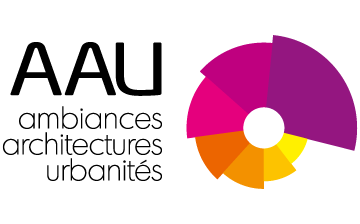An Architecture school of commons – ASOC
Financement : European Project ERASMUS + KA2 Partnership for cooperation / Cooperation partnerships for higher education, IDEX UGA "événements scientifiques" et IDEX UGA "International Research Booster"
Responsable(s) scientifique : AAU-CRESSON - ENSA Grenoble : Roberta Ghelli, Théa Manola.
Contrat de recherche débuté en janvier 2022
Faced with a context of economic, democratic and social crisis, a multitude of civil society initiatives have emerged in Europe over the last ten years. Often taking the form of common places, these initiatives aim to promote solutions adapted to the needs of local communities. These resource centres bear witness to the richness of an original process, based on social ties and horizontality. Whether they are located in rural or urban areas, they echo contemporary reflections on « the commons » and reveal another way of making architecture.
Reflecting these contemporary issues, the architectural community faces several challenges:
- democratic: how can people be involved in the design, construction and management of their environment, including their common spaces?
- economic: how can architectural projects of collective interest be financed and supported in a context of austerity and lack of public resources?
- ecological: how can the act of building be part of a sustainable future, by transforming the abandoned built heritage, using local, natural or reused materials?
The project :
An Architecture school of commons – ASOC project is interested in building bridges between architecture schools, local community projects (especially in rural areas) and a generation of activist architects organised in collectives. These bridges take the form of learning-by-doing workshops, involving all parties and producing concrete changes. These intense working times allow students to develop new skills and abilities to deal with complex and collaborative working environments. These experiments also train them in an ethical practice of architecture to better equip them to respond to contemporary and future emergencies. At the same time, these resource centres receive valuable support for their development.
Schools of Architecture, by training experts, have a key role to play in alerting students to their responsibilities in the face of contemporary challenges, both as citizens and as future architects. ASOC wants to promote a virtuous architecture, in connection with concrete issues of ecological transition and in a logic of maintaining and developing the commons in Europe.
Partners
Local authorities:
- Rivoluzione delle Seppie, Belmonte
- La place des possibles, St Laurent en Royans (Drôme)
- Tirilab Initiative, Thesprotia
Architectural collectives:
- Orizzontale, Roma
- Collectif Etc, Marseille
- Zuloark, Madrid/Berlin.
Retrouvez tous les contrats de recherche de l'équipe CRESSON
